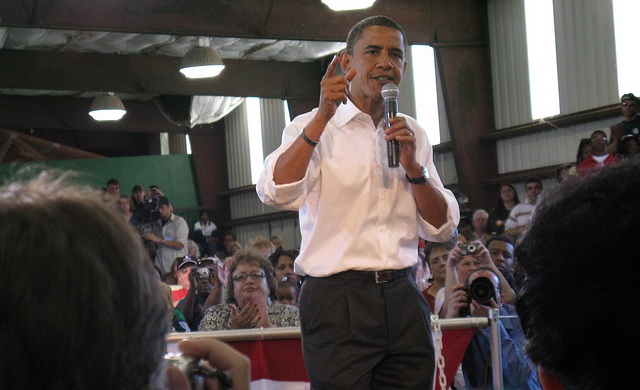As political stalemate in Washington over the issue of budget cuts continues with possibility of any eleventh-hour deal being very remote, the question now asked by everyone is not whether the sequestration will be avoided but how much will it impact.

Last month, President Obama, in his State of the Union address and subsequent communiqué to the nation said that sequester would spell disaster for the U.S. economy. He highlighted how spending cuts would result in travel days, backlog at ports, and force federal agencies to layoff or furlough employees.
However, the GOP says that President Obama is making a mountain out of a molehill. For them, impending budget cuts are barely going to hurt the economy, which is fairly true to an extent. Or else how can one describe such a laidback approach from both parties thus far? Budget Office estimates that agencies will actually slash spending by only about $44 billion, with the remaining cuts carried forward to future years as opposed to $85 billion cuts this fiscal, ordered by sequester cuts.
Many White House allies are aware of the fact that insignificant sequester will barley be noticed by Americans and worried that the hype created by Obama administration over the danger arising out of budget cuts will fade and will benefit Republicans.
For Instance; Emily Holubowich, a Washington health-care lobbyist who’s leading a coalition of 3,000 nonprofit groups opposing the cuts, recently said, “The good news is, the world doesn’t end March 2. The bad news is, the world doesn’t end March 2,” according to The Washington Post.
“The worst-case scenario for us is the sequester hits and nothing bad really happens. And Republicans say: See, that wasn’t so bad,” added Holubowich, speaking to press reporters, according to the Washington Post.
President Obama says that Americans will fume in case sudden and significant cuts come into effect from March 1, and is hoping that Americans will come forward to back his demand for a “balanced approach” (generating additional revenue through raising taxes on Wealthy Americans and budgets cuts as opposed to the GOP demand of shrinking federal government’s spending on welfare programs).
However, if Americans respond indifferently, then President Obama’s strategy may backfire as it will give Republicans a upper hand and instead of averting sequester an emboldened GOP will be demand for more cuts.
“It would be a big problem for the White House if the sequester came and went and nobody really noticed anything. Then people will start saying, ‘Well, maybe we can cut spending,” said John H. Makin, a resident scholar at the conservative American Enterprise Institute who penned “Learning to Love the Sequester,” an article recently published in the Wall Street Journal.
Meanwhile, a poll conducted last month showed that surprisingly large number of Americans had a very faint idea about how these dreaded spending cuts could impact their day to day life.
Indeed, a poll conducted by Pew Research Center and USA Today showed that nearly 43% of the American surveyed had only dimmest of idea on the sequester. While 29% of those polled said that they had no idea whatsoever about what sequester is, 27% of Americans who were surveyed said to have heard a lot on this topic.
When asked about whether they approve the sequester coming into effect , 40% of the respondents said that they would support budget cuts while 49% of those polled said that they would prefer to postpone it.
Once again majority of Americans are going to blame the GOP lest lawmakers fail to avert the sequester coming into effect. Earlier, during ‘fiscal cliff’ negotiations, most Americans supported President Obama’s stance on reducing nation’s fiscal deficit, saying that they would held responsible the Republicans if the U.S. economy falls off the ‘cliff’.
The latest poll shows that nearly half of those surveyed would blame congressional Republicans if talks fail, setting off budget cuts from March 1. Only 31% believes that President Obama is responsible for the current policy impasse.
Sequester, which is referred to as budget cuts worth $1.2 trillion during the course of next decade, spread equally between defense and non-defense areas, is expected to knock off about half percentage point of GDP growth in 2013.

 Hot Features
Hot Features













